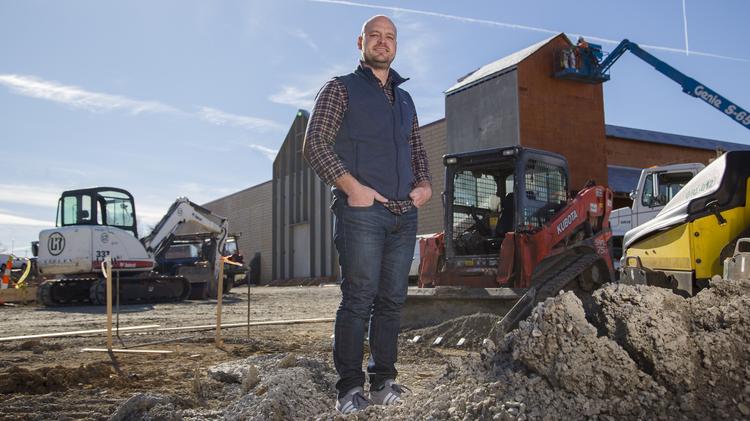Construction in the St. Louis region has largely been immune to the challenges posed by the growing coronavirus pandemic, but concerns are bubbling over how long that can last.
The availability of supplies, health of workers and whether project owners will get cold feet over starting new jobs are top of mind for many in the industry locally.
So far, Matt Mabie, owner and president of Knoebel Construction, said none of his company’s 27 job sites has been impacted by supply chain delays, but he’s been in talks with vendors about their expectations and what to do if delays do occur.
“I think we’re on top of that,” he said.
But he has other concerns, including the status of future projects. Some clients, including pet products retailer Petco, have pushed back new construction projects across the country that were to start in April to May, stacking up Mabie’s construction pipeline and challenging the availability of labor.
Another complication: municipalities are discussing a pause on building permits, and Mabie is concerned about whether he’ll be able to secure his permits in time if that occurs. He’s also watching the status of inspections; if municipalities pause those, then that means his jobs have to stop.
He’s taking it day by day, though, trying to stay optimistic. Knoebel Construction has enough “runway” to give him confidence.
“We’re good for now,” Mabie said.
Supply chain concerns
Others have been challenged by the supply chain. One St. Louis-area general contractor, who asked not to be named in this report, said he closed a job site after learning furniture would be delayed in an effort to save money. He also expressed concern over a possible delay on a delivery of Italian marble for another job.
Len Toenjes, president of the Associated General Contractors of Missouri, said he’s in constant contact with contractors and labor unions about the latest federal, state and local information. That increased communication is key to tackling what he called the industry’s “tough guy culture,” where hourly field workers often push through illness in order to maintain a paycheck.
“It’s hour by hour right now,” Toenjes said. “One consistent message we’ve been sending is to communicate. Communicate as much as possible.”
Ramping up safety
COVID-19 has added another layer of precautions for an industry already focused on safety, Toenjes said.
Most job sites have added hand sanitizer stations, and labor has allowed work to be spread across multiple shifts to adhere to social distancing guidance. Many sites also screen workers for symptoms prior to entering.
The scarcity of protective gear, such as respiratory equipment, could become an issue as the health care industry struggles to maintain its own supply, Toenjes said. So far, U.S. Vice President Mike Pence’s call for construction companies to donate their masks doesn’t seem to have impeded the local workforce, he added.
“Nobody is more concerned about the safety of those workers than their employers and the unions who represent them. Nobody. No elected official. No regulatory body,” Toenjes said.
